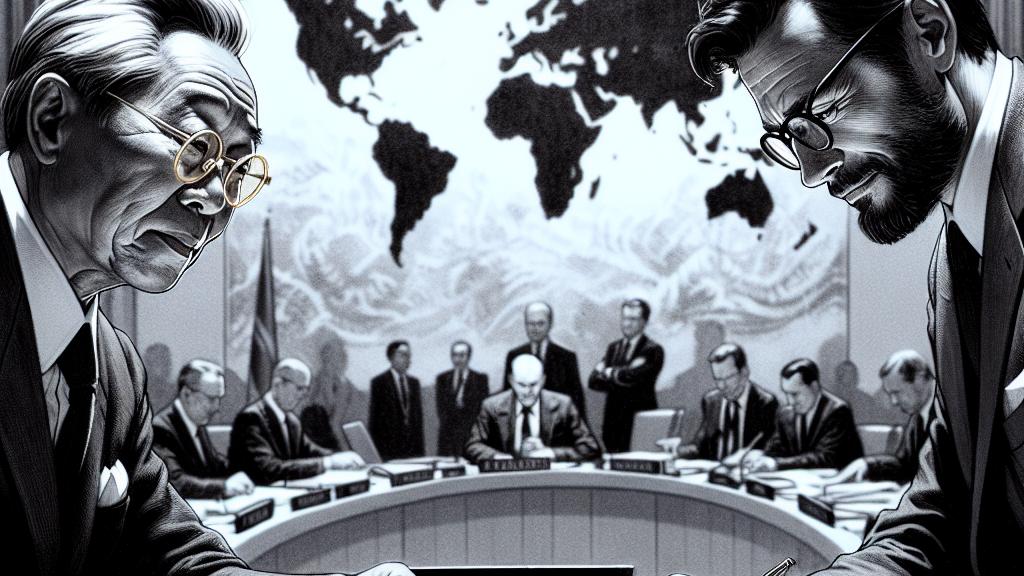Diplomatic Discussions: Blinken and Wang Yi Meet at the UN
Overview
- U.S. Secretary of State Antony Blinken and Chinese Foreign Minister Wang Yi engage in vital discussions at the U.N. General Assembly in New York.
- Critical topics include the Ukraine war, tensions over Taiwan, and cybersecurity issues threatening global stability.
- Despite significant challenges, both nations recognize the urgency of dialogue to foster international peace and cooperation.

Confronting Global Challenges Head-On
At the heart of U.N. discussions in New York, U.S. Secretary of State Antony Blinken and Chinese Foreign Minister Wang Yi found themselves in a pivotal moment not just for their countries, but for the world. The ongoing war in Ukraine set the stage for urgent conversations, especially as President Zelenskyy dismissed a Chinese peace proposal earlier that week. Moreover, emerging reports suggested that Russia is working with China to develop advanced weaponry, raising the stakes for international relations. Here, in the bustling corridors of diplomacy, both leaders had a significant opportunity—to bridge divides and steer their nations toward productive collaboration during turbulent times.
Navigating the Complexities of U.S.-China Relations
The dialogue between Blinken and Wang laid bare the intricate tensions that define U.S.-China relations today. Taiwan served as a focal point of contention, with the U.S. arms sales creating friction—a situation that Wang has vehemently opposed. For example, the Chinese government views these actions as direct threats to its sovereignty and regional stability. Additionally, tariffs imposed by the U.S. further complicate the economic relationship and reflect a shift in how both nations approach trade. It’s essential to remember that these diplomatic discussions serve not merely as a venue for grievances but as a platform to seek understanding. Without such interactions, misunderstandings could quickly spiral into conflict, threatening both economic and global security.
Building Bridges for Future Cooperation
Despite the challenges, there was an undeniable aura of hope during their discussions. Blinken and Wang both acknowledged pressing issues—like the fentanyl crisis and climate change—that require urgent cooperation. The fentanyl epidemic, which has devastated communities across the U.S., calls for joint efforts to disrupt drug trafficking and address its root causes. Furthermore, with climate change threatening the planet, both nations must recognize their shared responsibility in combating this crisis. Engaging in meaningful dialogue not only strengthens relations but could also pave the way for innovative solutions and partnerships. Ultimately, as the world watches, the commitment to transform tension into cooperation could define not just their nations' futures, but the future of international diplomacy.

Loading...